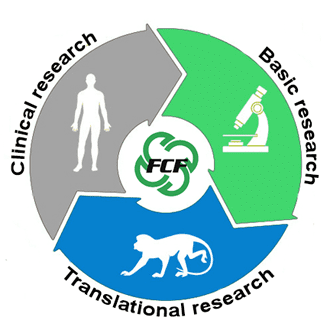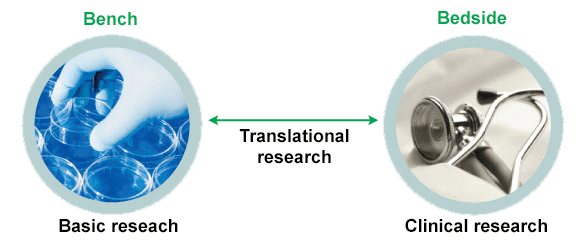
There are important distinctions among the three principal types of medical research — basic, translational and clinical. While basic research looks at fundamental questions about the way things work, translational research takes those basic concepts and applies them to medical problems. Clinical research then investigates potential therapies through clinical trials. Together, they form a continuous “bench-to-bedside” research loop that can transform new ideas and concepts into new treatments and tests, and ultimately improve patient care.
Basic Research
Basic research is sometimes referred to as basic science or fundamental research. Basic research tries to generate a better understanding of a particular concept. Typically, basic medical research is conducted by highly specialized scientists in fields like biology and chemistry who try to understand how things like DNA, cells, and proteins work. Examples of basic science experiments include identifying all the protein changes driven by the genomic mutations in a tumor, or understanding the role particular compounds play in tumor progression.
Translational research
The goal of translational research is to take the knowledge of a specific biological phenomenon and translate it into something that could potentially be used clinically. An example of translational research is testing large numbers of potential compounds on tumor cells to look for an ideal combination that kills tumor cells while minimizing the impact to healthy tissue. Another might be finding ways to deliver chemotherapy to cancer cells while minimizing exposure to the rest of the body. Because it is often unsafe to transition from studying basic concepts to patient testing, translational research is often conducted using animal models, which can be a valuable tool for testing different therapies before patient testing.

Clinical research
Clinical research, or research involving patients, is the last step in the process. Clinical research determines whether new therapies and diagnostic techniques are safe and effective in actual patients. Clinicians typically test these in tightly controlled clinical trials, where they validate new drugs, determine the efficacy and safety of the approach, and often compare the results to other treatment standards.
